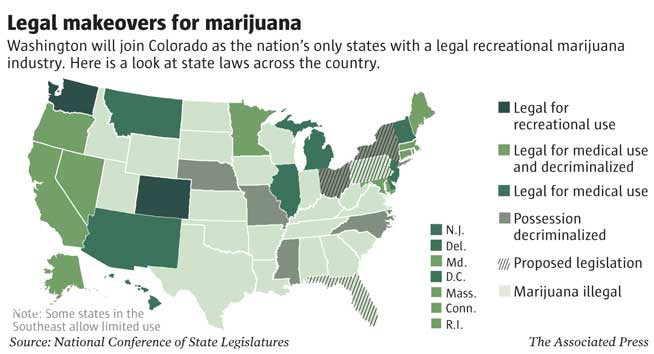Recent studies from the state of Washington, one of the more recent states for marijuana legalization, found that fatal car accidents involving drivers who tested positive for marijuana has nearly doubled since the law legalizing marijuana was enacted in 2012.
The issues with this statistical analysis is three fold, namely: 1) what amount of THC was found in the blood of the drivers; 2) was that amount enough to impair each particular driver and 3) whether any other substances were found in the drivers’ blood that could have led to impairment. A lot of times when discussing broad sweeping statistics like increases in automobile crashes, many of these questions are left unanswered.
A recent article from Wish-TV 8, http://wishtv.com/2016/05/10/study-legal-limits-for-pot-and-driving-are-arbitrary-unsupported-by-science/, touched on some of the issues above and outlined again that the Washington marijuana-fatal-accident study did not in fact determine that those with THC in their systems were impaired and caused the fatal accidents.
Although the studies failed to show marijuana was the source of any impairment in the fatal accidents, it did prove that marijuana was showing up in more people’s blood. This is a concern because currently there is no standardized way to determine marijuana impairment in motorists. Additionally, when a person is charged with operating a vehicle under the influence of marijuana pursuant to a blood test with a positive indicator for THC, there is no way of determining when that THC entered the body…i.e. could have been 3 weeks ago or hours before. With alcohol, law enforcement has become quite efficient in determining impairment. The National Highway Traffic Safety Administration (NHTSA) created an entire manual and training sessions to educate law enforcement on conducting alcohol impairment investigations including the use of standardized field sobriety tests, portable breath tests and the use of the breath test machine. None of these investigative techniques are available for determining marijuana impairment. Over the next few years however, as more and more states begin to entertain the idea of decriminalizing and marijuana legalization, you are going to start to see a universal and collaborative approach in determining marijuana impairment as they did with alcohol.
If you have been arrested for possession of marijuana, driving while intoxicated, DUI, OVWI, or driving under the influence of marijuana, you need an experienced attorney knowledgeable on the NHTSA manual including the proper implementation of SFST’s. As a former prosecutor, Kevin Potts has the trial and litigation experience to assist you in your time of need. Contact PottsLawLLC today. 317-951-0087


